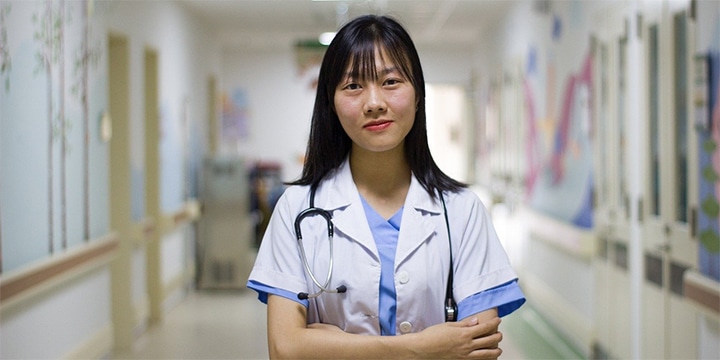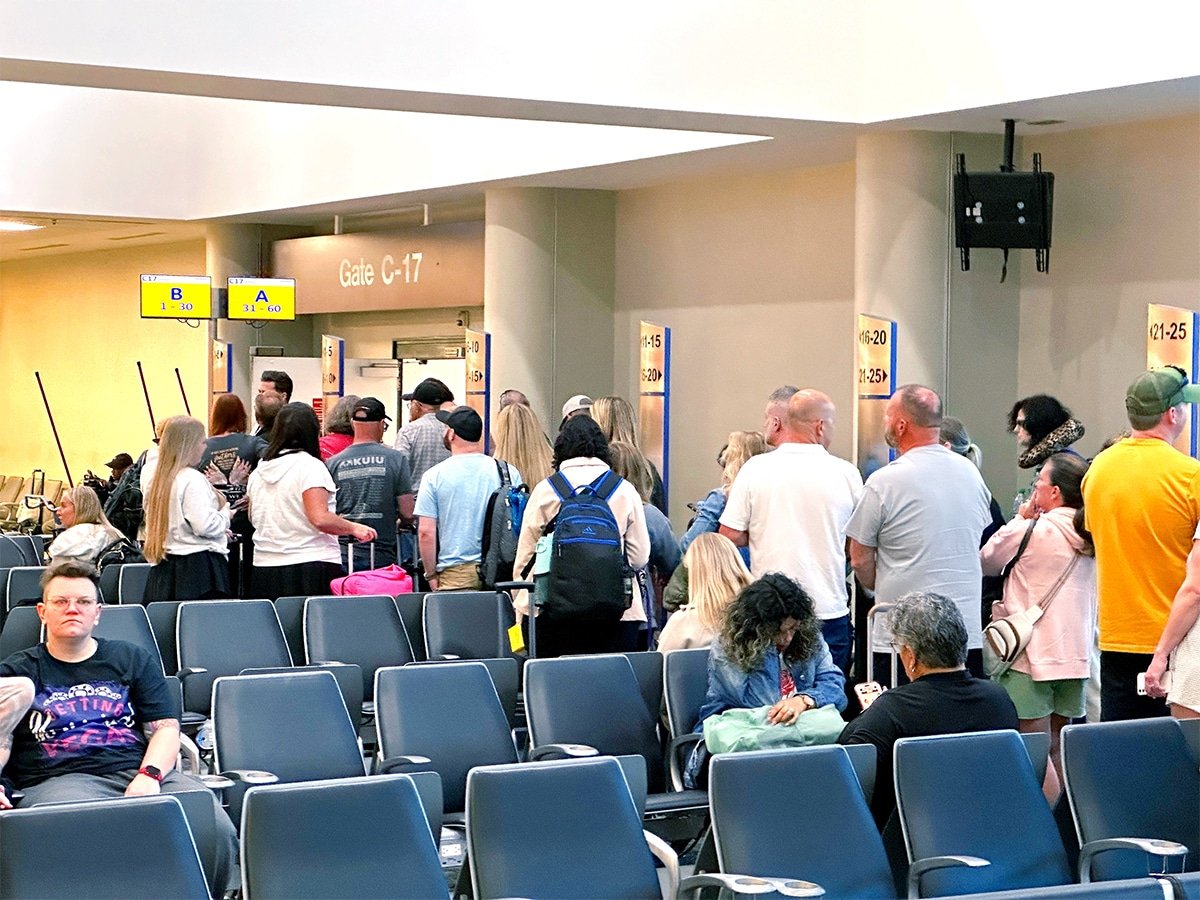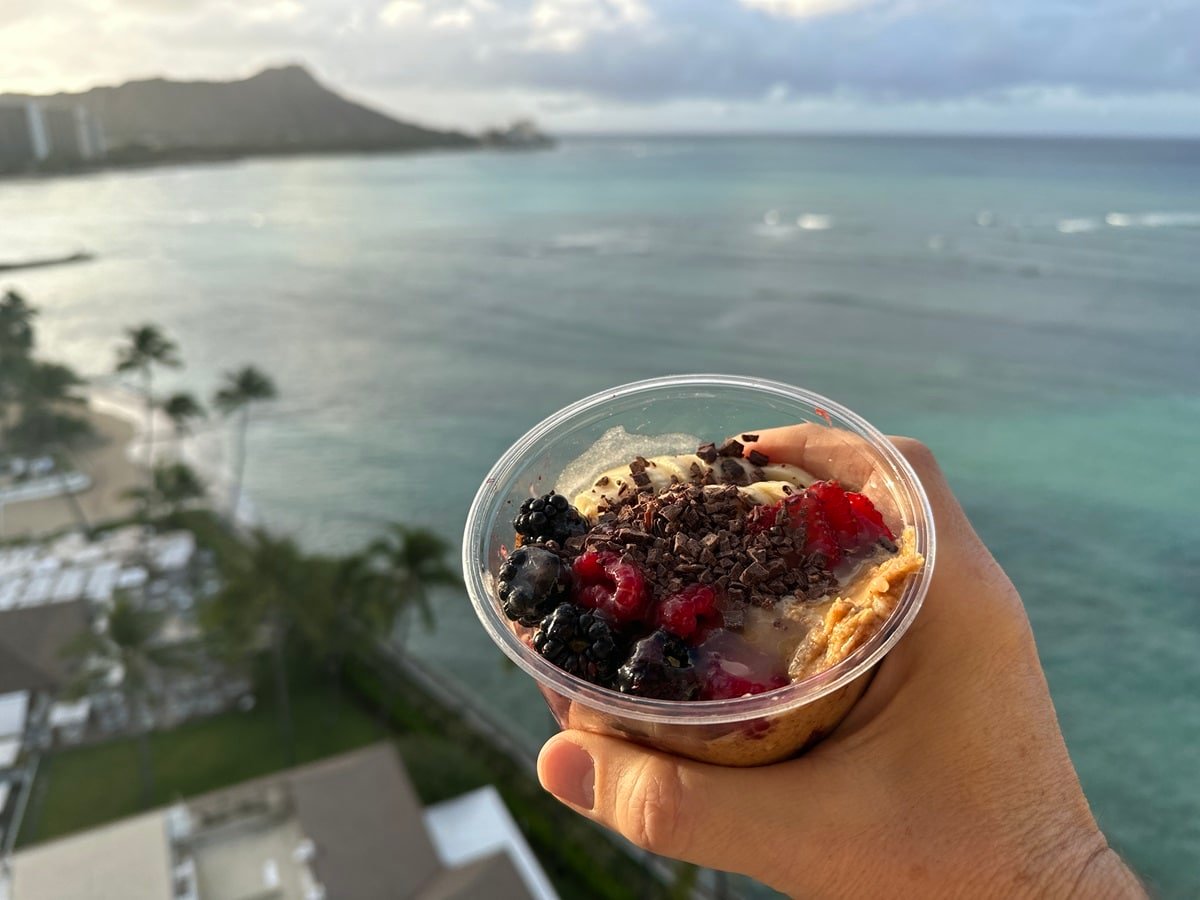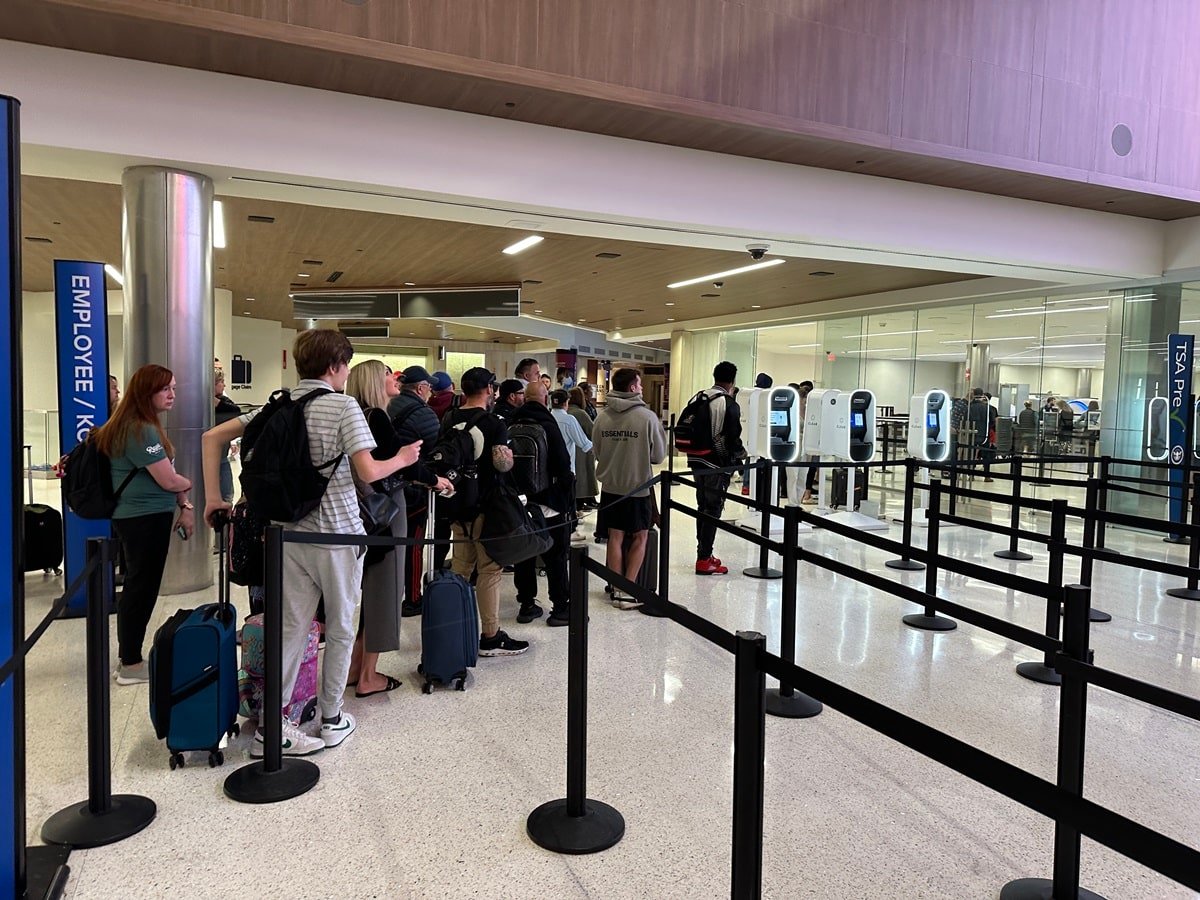 Would you travel right now? While some people are still traveling, most are not. I have yet to get on an airplane as I feel like the risks are too high and I can’t risk exposing my family, especially my two young children, to the unknowns of coronavirus. But would doctors travel right now? We checked in with some experts across the country to find out their thoughts on traveling during this pandemic.
Would you travel right now? While some people are still traveling, most are not. I have yet to get on an airplane as I feel like the risks are too high and I can’t risk exposing my family, especially my two young children, to the unknowns of coronavirus. But would doctors travel right now? We checked in with some experts across the country to find out their thoughts on traveling during this pandemic.
Dr. Nina Shapiro, author of HYPE: A Doctor’s Guide to Medical Myths and Professor at the David Geffen School of Medicine at UCLA
Personally I don’t feel comfortable traveling right now, be it by air, train, or cruise ship. There are literally and figuratively too many moving parts in commercial travel, too many unknowns, and too many risks. For instance, air travel includes time at an airport, public restrooms, enclosed spaces, and being surrounded by so many people who can have all levels of potential to transmit Covid-19. While many people wear masks and exercise physical distance, there is no basis to know what each individual traveler, airport employee, or airline employee does during their non-work or non-travel time. Unless there is an urgent reason to fly, I am not ready to do it.
Cruises, as we already know, carry with them extremely high risks of communicable diseases. The usual bugs we’re not hearing much about these days (norovirus, and e.coli, common gastrointestinal illnesses we see on cruises) will still exist. Add in the risk of coronavirus, and it’s a big ‘no’ for me. I also think there is real concern for communities when cruise ship guests get on and off the ships. This is a concerning potential means of spreading Covid-19 to communities that may currently have relatively low numbers. As for trains, that really depends on how long the trip is, and what the physical space looks like. Private, semi-enclosed areas or sleeper berths are less concerning than people-filled areas.
I’m less concerned about hotel rooms. While covid can live on all types of surfaces, the actual likelihood of catching it from a hotel room or hotel item is extremely low. More concerning in hotels are common spaces such as elevators, restaurants, bars, or tightly-seated pool areas. If the hotel has a great deal of outdoor space, and you can minimize time in indoor public areas, this is a softer call.
Road trips are the safest way to go. Family in one car, not families from multiple homes together in an RV, is the safest way to travel these days. Ideally, stops should be planned out ahead of time, pack as much food/snacks/drinks as you can, and head to outdoor spots like national parks, state parks, less visited beaches, mountains, rivers, etc. This is the summer to enjoy the outdoors as much as possible. When staying overnight, camping, staying in a cabin, a rented home, or even a small hotel are all great options.
When planning to travel, a few additional precautions are recommended, this year as opposed to other years:
1) If someone is the least bit sick (cold, cough, fever, or stomach issue), cancel! It’s not worth the risk of spreading anything these days, and COVID comes in all shapes, sizes, ages, and health statuses.
2) Bring as much of your own products as possible, especially if you’re driving. This can include all toiletries, towels, sheets, sleeping bags, etc.
3) Bring extra wipes and hand sanitizer, a stash for each family member.
4) Bring a variety of face coverings, depending on your planned activities. Some work better for beach time, hiking, exercising, walking at night, etc.
5) Bring pain reliever and fever reducers for all family members, just in case.
6) Get some rest! These are stressful times.
7) Check the situation regarding infection rate at your destination and along the way. Reconsider if your trip is taking you to a new ‘hot spot’.
Christine Bishara, MD, an internist and founder of From Within Medical, a wellness medical practice in the NYC area.
We would definitely travel right now and did this past weekend. We stayed at a hotel in Lake George and felt pretty safe. That being said, there are certain precautions that should be taken, depending on the mode of transportation. I’ll assign them a high, medium or low risk to make it easier. Also keep in mind that many locations and states have restrictions and it’s very important to check ahead before you travel.
RELATED: Coronavirus Resource Page for Travelers
Cruise ship: High risk
I would say hold off on taking a cruise ship for now since it’s a large number of people in a confined space. If an outbreak occurs, you have no way of getting off the ship and you’re faced with an increased risk of infection. You would also be subject to a mandated 14 day quarantine.
Trains and air travel: Medium risk
Trains and air travel pose less risk than cruises, but still some risks. If one can assure that a mask will be kept on by all occupants of a train or airplane and sanitizing precautions are taken by the operator, then the likelihood of infection is low. Check with airlines and train operating companies before you travel to check on rules regarding masks and seating.
Road trips: Low risk
I think road trips might be the safest options for Americans this summer. This is because most people will be traveling with family members they have already been socially distancing with and in the comfort and safety of their own car, so the risk is low. Keep in mind that many destinations will have restrictions on the number of people as well as State imposed restrictions on who can enter. This may include your own home state that may require quarantine of those returning from certain areas. Make plans but call ahead to see what is open. I think hotels are considered safe overall if the right precautions are taken. This includes assuring that the hotel staff have changed all bedding, bathroom towels etc. I also recommend sanitizing all door knobs, and closet doors once you enter your room, along with other surfaces that may have been touched frequently such as the phone or TV remote.
Dr. Alissia Zenhausern, NMD Naturopathic Doctor + Founder
Being a physician in Arizona, where we are experiencing a record number of COVID-19 cases, I have been recommending to patients to reduce unnecessary travel at this time. One of my biggest concerns is some airlines are considering filling their planes up to capacity, which makes social distancing nearly impossible. I am extremely concerned by this and have recommended patients not to travel by air at this time. For those who must travel for work, I am requiring COVID 19 testing including acute nasal swab testing prior to their trip as well as upon their return. The same recommendations also apply to train and cruise ship travel. Any travel that is not absolutely necessary should be avoided. This will help not only protect yourself from exposure to COVID 19 but will help reduce exposure to others who must travel for their work.
Hotels are currently implementing sanitation protocols for their hotels. However, make sure to contact the hotel you are planning to visit and ask them about their sanitation protocol and how they are protecting customers as well as their staff. Look for contact free check-in, and ways to limit your exposure to others. Continue social distancing and wear a mask at all times. Consider wearing gloves when touching elevator buttons and doorknobs.
For all forms of travels, I suggest avoiding all unnecessary travel. We understand that, especially during the summer months, many people are frustrated they are not going on vacation, however, the more we can reduce travel at this time, the better we can manage COVID -19 exposure and cases in each state.
For anyone traveling, I recommend COVID -19 testing. It is also important to remember that although you may be following the recommendations of social distancing and wearing a mask, you cannot control what the person sitting next to you on a plane does.
Jenny Bentwood, MD, Family Medicine
My husband, two toddlers and I recently moved from Idaho to NH. Initially, we were all going to travel by car, but being unsure whether rest areas would be open, the frequency of stops required with a 2- and 4-year-old, and the length of the trip, I made the decision to fly with the girls. My husband drove our car with the U-Haul trailer.
The girls and I flew Alaska Air from Seattle to Boston. My 4-year-old and I wore masks, I carried wipes and we did not check any luggage to minimize any time spent in a large group waiting in baggage claim. The plane was maybe 2/3 full, certainly no more than that. There was no food service and they did not distribute entertainment tablets. I was reassured by all these measures.
We stayed at a hotel the week before we moved. At that time, there were only 5 cases in our county, so I felt safe staying there. The rooms were cleaned daily, we kept the windows open and the staff were always masked and wore gloves. As long as the staff of the hotel is taking appropriate precautions and rooms are cleaned daily, I feel safe staying in hotels if I must.
Road trips in and of themselves seem the safest way to travel given that you are isolated to your own car. Of course, typically you need to make stops and of course there is a destination. Depending on the length of the trip, the number of stops you make, and the destination, the risk will change.
In general, during a pandemic, we should stay home. If one must travel, I recommend first considering your destination and avoiding areas with a high burden of disease. Drive in your own car if possible, with as few stops as possible (pack enough food to avoid restaurants). If you must fly, wear a mask, fly with an airline that actively enforces mask wearing and ensures that the plane will not be full. Carry hand sanitizer and bleach wipes.
Consider whether or not you may be a risk to someone else. Don’t travel if you’re ill and certainly don’t travel to an area where you have a high likelihood of contracting COVID and bringing it back to your home/family.
Dr Lisa Benya, Founder of CURE
Due to the rise in COVID 19 cases across many regions in the United States, I feel that non-essential travel should be avoided. If essential travel is necessary, I would recommend traveling by car to limit exposure to others. This might provide the only method to control your surroundings and avoid contact with others that might have COVID 19. If distance or time prohibits travel by car, then travel by air would be my next choice. In booking plane flights, I would research the airline thoroughly to ensure proper filtration, seating and cleaning protocols are being followed for maximum safety. Choosing the window seat and wearing masks, goggles/eye protection, and gloves during the entire travel experience from arrival to departure airport through to arrival to final destination gives you the best chances to avoid contracting the virus. My choice of hotels would also be researched thoroughly, ensuring that the company was following all safety protocols mandated by CDC. During my stay in the hotel, I would avoid lobbies and other common spaces.
As this pandemic rages on, the ability to find enjoyment safely is still a goal we all should have. Small road trips locally where scenery can be viewed and fresh air experienced is the best option for travel at this time.
Have your own tip? Email it to whitney@johnnyjet.com!
Want to see more tips? Click here for all 1,757!
Want even more travel tips? Sign up here for the Daily Travel Tip newsletter! Enter your email address and check “Daily Travel Tip” to receive Johnny’s best tips in your inbox each day!
If you already subscribe to our weekly newsletter, you can sign up on the same page. Just fill in your email and check “Daily Travel Tip” on the same page. You’ll receive an email with a link to update your JohnnyJet.com preferences. On that page, just click the Daily Travel Tip box and Update Profile.








This column texts surprising ignorance by medical professionals about the safety and sanitation protocols currently being developed and in some cases employed by many in the travel industry. This is not to say that everyone does, but a little research can reveal those that are transforming the travel experience to be, in some cases, safer than before. New technologies such as electrostatic antiviral foggers, far-UVC lights and ventilation systems that replace the air every 2-4 minutes are revolutionary, and SHOULD make travelers feel comfortable when they are employed. We are not seeing breakouts from planes or the resorts using these technologies.
Dr H, MD, Internal Medicine. I would love to get on a plane to anywhere tonight, but no, it can’t happen yet. The current surge in cases is the direct result of the massive exodus on Memorial Day Weekend. Look at the daily case numbers, big jump on June 15, 2 weeks after the start of that weekend. My bad news: the July 4th mass exodus was even larger. I’ve been predicting a huge jump in cases beginning July 18-20th. The good news is that while the current bug is much more infectious than the original back last winter, it is less pathogenic. You get sick, but it’s milder. Also, I dare say the overwhelming majority of cases are asymptomatic to very mild illness. The really sick folks are few and far between, but urban living seems to make it appear much worse than it is. Labor Day weekend plus 2 weeks will tell a great deal. Minimal or no surge, it’s over. Big jump, it’s still here. I’ll travel when it’s safe for me, and my family and friends.
I would feel safer if there was reliable data about the use of these technologies by testing and contact tracing.
A feature of your posts in the past was for sweepstakes. If there are any suitable ones available, it would be great to include them again.
Hopefully, we will start them back up when the pandemic is over
Just tried to use a Reduced Mileage Award on American. My credit card entitles me to a 7500 mile discount for flights over 500 miles. My flight was over 500 miles, and the miles required for my flight on their web page was 15000 RT. So I asked for the 7500 mile reduction. Agent said I’d only get 2000 miles off, because the 15000 rate was already discounted. There is nothing on their web site saying that, and the discount is said to be on their MileSAAver awards. Did I just get ripped off? Is there any recourse?
Your deal of the day, Apple Airpod Pro at Costco is $200. And you get Costco protection as well.
Good to know! I will tell my wife who helps curate my deals
Hi Johnny,
Listened to you yesterday with Leo on the radio and have to add a comment to the cruise lines. Viking only has outside cabins with access to the outdoor. No inside, windows, or portholes. Also they have a pcr lab onboard now. That should give then advantage to restart.
My son recently flew to Mexico City and then took a bus to Lake Bravo. When he sent home pictures of himself water skiing, it occurred to me that he did not have medical insurance in the event of an accident. Would the Mexican health care system take care of him? Can you recommend where to investigate medical insurance for long term travelers to Mexico? THANK YOU!
Hi Gail
They would not take care of him. I’ve heard of horror stories where you need to have a credit card or get the money wired. I’m not sure about long term but you can try the two companies I have listed here https://johnnyjet.com/travel-insurance-policy-company-use/
Johnny;
Question for you…. Last April (2020), I paid for a spanish immersion trip (2 weeks) and a deposit for 18 days spain travel. April was suppose to be my dream vacation with travel in SPAIN for a month. Both were paid in full when the COVID forced all cancellations of travel internationally. I tried to get a refund from both but was unsuccessful. The first business offered 30% of the $3,000 paid. The second travel company offered 80% refund but changed it to credit only. I have more than $7K locked up in travel vacations that I cannot use or get back. Has this happened to others? What is the recourse? Both companies are rated well, but new policies were implemented since COVID. This seems very unfear that they are holding this money for ransom and I was not aware of this policy. I don’t want to do business with either of them now. Until it is safe to travel, I am not willing to travel. This is more than one year since contacting them and I fear I will lose this money and don’t know who to go to for help. Any suggestions or resources that may be able to help me with a refund?
I just ordered from Amazon the BROAD AirPro Mask Rechargeable Reusable Air Purifying Respirator with a HEPA filter. May I use this in the airline cabin as a mask?
Thank you.
Good question. I think it’s up to the flight attendant but I would think they would
Let’s go Brandon!!
Hi Johnny,
I need a little advice = Iberia airlines lost my suitcase with everything in it clothes, sundries and the list goes on – in Madrid when my flight from JFK, NY arrived on December 15, 2001 for my connection to Rome which was delayed 3 hours. Thankfully, I had my meds & electronics in a carry-on. I called Iberia airlines lost delayed luggagein NYC every day from December 15, 2001 through December 29, 2021. It was delivered to me in Venice, Italy on December 30, 2021. 15 days delayed but no damage surprisingly. I had private insurance for delayed luggage with a $600.00 limit. So, I needed winter clothes right away and purchased what I needed for a few dollars less than my delayed travel insurance permitted. I think Iberia airlines needs to compensate me for the stress, inconvenience and failing to delver my suitcase for 15 days. I thought about sending a request to Ibera Airlines for reimbursement of the suitcase that cost $72.00 and another suitcase that cost $72.00 to put on the flight from JFK to Madrid to Rome.
Also, going back to JFK, NY the $154.00 luggage fee should be waivd. Lastly, a complimentary upgrade for my wife and I to business class from coach class on our flight home from Rome to JFK on March 14. What do you think? Also, do you have anything to advise me what I need to do to be compensated? Thank you, Johnny